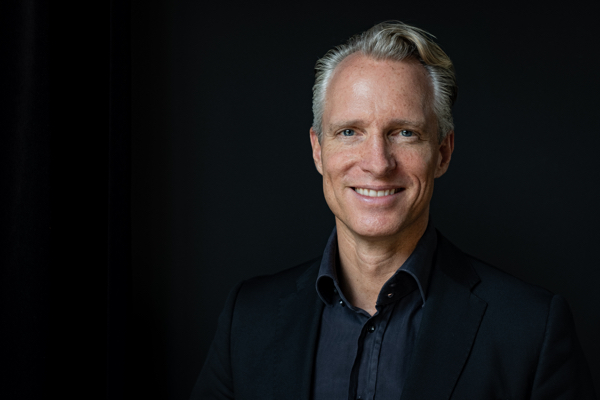Ruby is a young, rapidly expanding hotel group with 15 hotels, three linked workspaces in major European metro areas and other projects under construction throughout Europe. The Munich-based group was founded in 2013 by Michael Struck who serves as CEO.
The brand is a player in the evolving and growing “affordable luxury” market segment and wants to attract what they describe as “cost and style-conscious customers” with its “lean luxury” strategy.
Ruby is not only expanding in Europe, but it is bringing its philosophy to China with projects in five cities that are near completion, according to a company statement.

As of February, Ruby employed 330 people. By the end of 2023, the group plans to have around 680 employees across Europe, with a capacity of 3,576 rooms and more than 1,500 workspace desks.
One way Ruby is trying to attract hospitality employees in its growing network is through a novel recruitment campaign in which every new employee with six months at their new job will receive up to €500 for a tattoo, piercing or new hairstyle. Ruby says it “wants to encourage its employees to create their individual success story, to show their own personality and also showcase it at work.”
For these creative approaches such as its recruitment program, its brand positioning and strong financial backing, Struck is confident about the future despite the uncertain economic climate.
HOTELS: Ruby was 25% owned by the Otto family, who own and operate the ECE development firm. Is that still the case? Can you disclose who the other major investors are?
Michael Struck: The Cura KG (Alexander Otto’s Family Office) still owns 25% of Ruby. Other main shareholders are Soravia Group in Vienna, Franger Investment, Michael Struck, Michael Hehn, and Ocean Link (a Chinese PE firm).
H: Ruby has opened three hotels since April, expanding your portfolio to 15 hotels and three workspaces. The company has announced plans to create even more hotels. Will this rate of expansion continue for the next three years? Is there a number of hotels and workspaces that the company envisions?
MS: Ruby’s lean luxury product is fully developed and performs very well, especially in very competitive cities like London or Zurich. More hotels will be added to our portfolio in London and Florence within the next 12 months.
Ruby Workspaces are under construction in Amsterdam, Vienna, Florence and Stuttgart and will also open within one year. While we do want to continue growing, however, we are not in a hurry and focus on making each Ruby hotel perfect and consistent with our lean luxury philosophy. Our growth rate is therefore entirely dependent on if (or rather when) we find the right spaces in the right locations.
H: How do workspaces fit in with the overall strategy? Are they part of hotels or are they stand-alone operations? How many do you plan on creating by the end of the year?
MS: Workspaces are an ideal complement to our hotels. They share our lean luxury philosophy and fit our established core capabilities. They generate spatial and operating synergies, and they help to optimize space efficiency, providing additional value to our real estate partners.
Our Ruby Workspaces are always linked to our hotels, either by being in the same building or in close proximity.

H: How is the portfolio performing for hotels and workspaces? Are there economic concerns over the next six months?
MS: We are very fortunate that not only the general recovery from the pandemic has benefited our hotels and workspaces, but that indeed the current economic uncertainty benefits price-value-advantageous products like ours, particularly also because our entry price levels are below the budget thresholds that business and leisure travelers typically observe in times like these.
H: How much of your expansion involves development partnerships, such as Tristan Capital Partners, versus new construction?
MS: Both in new construction as well as in conversion of existing buildings, be it existing hotels or existing office spaces or retail spaces, we like to work with long-term partners. This pertains to real estate developers as well as to real estate investors and asset managers.
H: How do you maintain your brand while working with different development partners?
MS: Through set brand standards, close monitoring and involvement in all development and construction processes, and an always good relationship with our development partners.
H: How do you define “lean luxury” and how do you build it into your business model?
MS: Lean luxury in hotels means that we offer to our target group of guests that which they consider luxury at a ‘lean’ price: Individual, boutique-style hotels full of character and soul that offer all the essentials at a luxury level by economizing on those things that our guests do not need or want in the central location of a large city (which is what we focus on).
We complement the resulting price-value-advantages by being lean on labor costs – by automating and centralizing more than most hotels, building on a highly digitalized set of processes – and by being lean on space – again based on novel, technologically savvy ways of planning and building our hotels.
H: Is your expansion in China following the same formula that you have in Europe?
MS: In China, we successfully operate through our joint venture with one of China’s major hotel companies, Delonix Group. Whilst staying true to our lean luxury philosophy, we have adjusted our product to optimally serve the local consumer requirements, such as adding twin rooms to our room portfolio, or including a local hot buffet to our breakfast offering.
